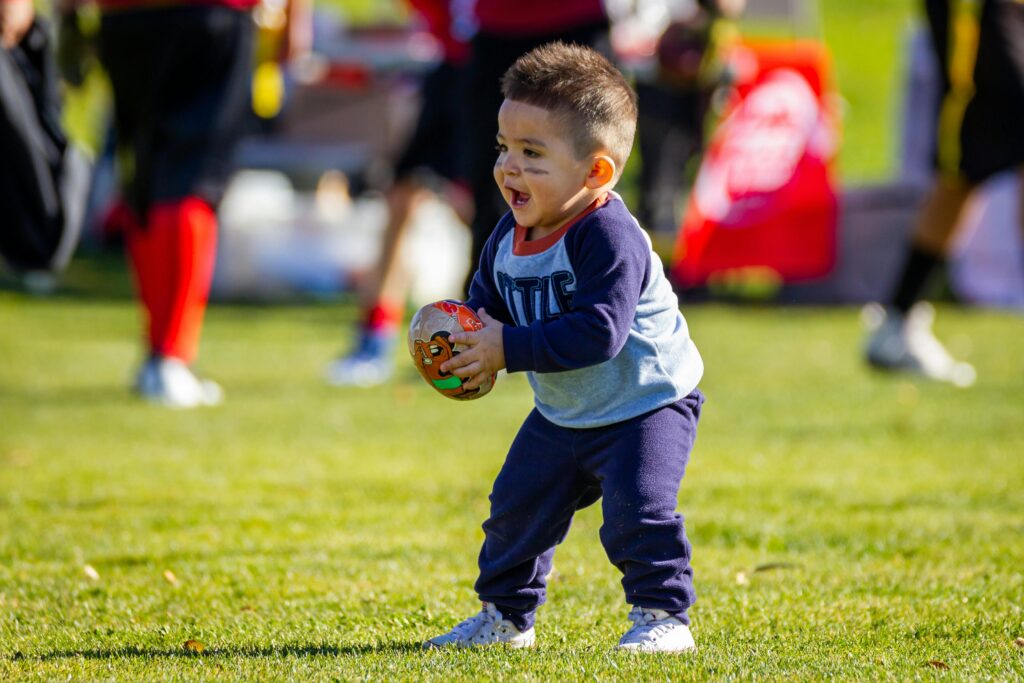As a mom, nothing is more rewarding than watching your little one grow and hit those important milestones. But what happens when your toddler isn’t talking as much as their peers? It’s natural to feel a wave of concern. Speech delays in toddlers are a common worry among parents, and understanding what to look out for, what’s normal, and how to seek help is crucial.
This post may contain affiliate links. Any purchase made through such links will result in a small commission for the author, at no additional cost to the you.
What to Look Out For
Speech development varies widely, but there are some key milestones to watch for:
- By 12 months: Babbling and using simple words like “mama” or “dada.”
- By 18 months: Saying several single words and starting to point to objects.
- By 2 years: Using simple two-word phrases like “more juice” and having a vocabulary of around 50 words.
- By 3 years: Speaking in short sentences, being understood by familiar adults most of the time, and having a vocabulary of about 200 words.
Signs that may indicate a speech delay include:
- Not babbling by 12 months.
- Limited use of gestures like pointing or waving by 12 months.
- Preferring gestures over vocalizations to communicate after 18 months.
- Having trouble imitating sounds or understanding simple verbal requests.
- Difficulty putting words together into sentences by 2-3 years.
What is ‘Normal’?
It’s important to remember that every child develops at their own pace, therefore normal is hard to assess. Some toddlers may be late bloomers and catch up without any intervention. However, if you have any concerns at all, please reach out to your child’s pediatrician. Evaluation for early intervention is always available.

What to Do and Not to Do
What to Do:
- Consult Your Pediatrician: If you have concerns, the first step is to talk to your child’s doctor. They can perform hearing tests and recommend further evaluation if needed.
- Early Intervention Services: These programs offer evaluations and therapies for children under three. Early intervention can be incredibly effective in helping children catch up.
- Speech Therapy: A licensed speech-language pathologist can work with your child to improve their speech and language skills.
- Engage in Communication: Talk to your child throughout the day, narrate your activities, read books, and encourage them to express themselves.
- Use Simple, Clear Language: Use short sentences and emphasize key words to help your child understand and imitate speech.
- Model Speech: Repeat what your child says correctly without criticism. For example, if they say “wawa,” you can respond with “Yes, that’s water.”
What Not to Do:
- Don’t Panic: Many children with speech delays catch up over time. Stay positive and patient.
- Avoid Comparing: Each child is unique. Comparing your child to others can create unnecessary stress for both of you.
- Don’t Overcorrect: Constant correction can be discouraging. Instead, model the correct way of speaking gently.
- Avoid Pressuring: Encourage speech in a fun and relaxed manner. Pressuring your child to talk can create anxiety and hinder progress.
Resources for Help and Information
American Speech-Language-Hearing Association (ASHA): Provides comprehensive information on speech and language development and a directory of certified speech-language pathologists. Website: ASHA
Centers for Disease Control and Prevention (CDC): Offers developmental milestones checklists and tips for parents. Website: CDC Developmental Milestones
Zero to Three: Focuses on early childhood development and provides resources and support for parents. Website: Zero to Three
National Institute on Deafness and Other Communication Disorders (NIDCD): Provides information on speech and language development and disorders. Website: NIDCD
Local Early Intervention Programs: Contact your state’s early intervention program for evaluations and services. You can usually find information through your state’s Department of Health or Education.
Final Thoughts
As a mom, it’s natural to worry about your child’s development, but it’s also important to seek help when needed and trust your instincts. Speech delays can be challenging, but with the right support and resources, many children make significant progress. Remember, you’re not alone on this journey, and there are plenty of resources and professionals ready to help your child thrive.
Once again, if you have any concerns about your child’s speech development, don’t hesitate to reach out to a healthcare professional. Early intervention can make a world of difference. Keep talking, keep encouraging, and most importantly, keep believing in your child’s potential.

